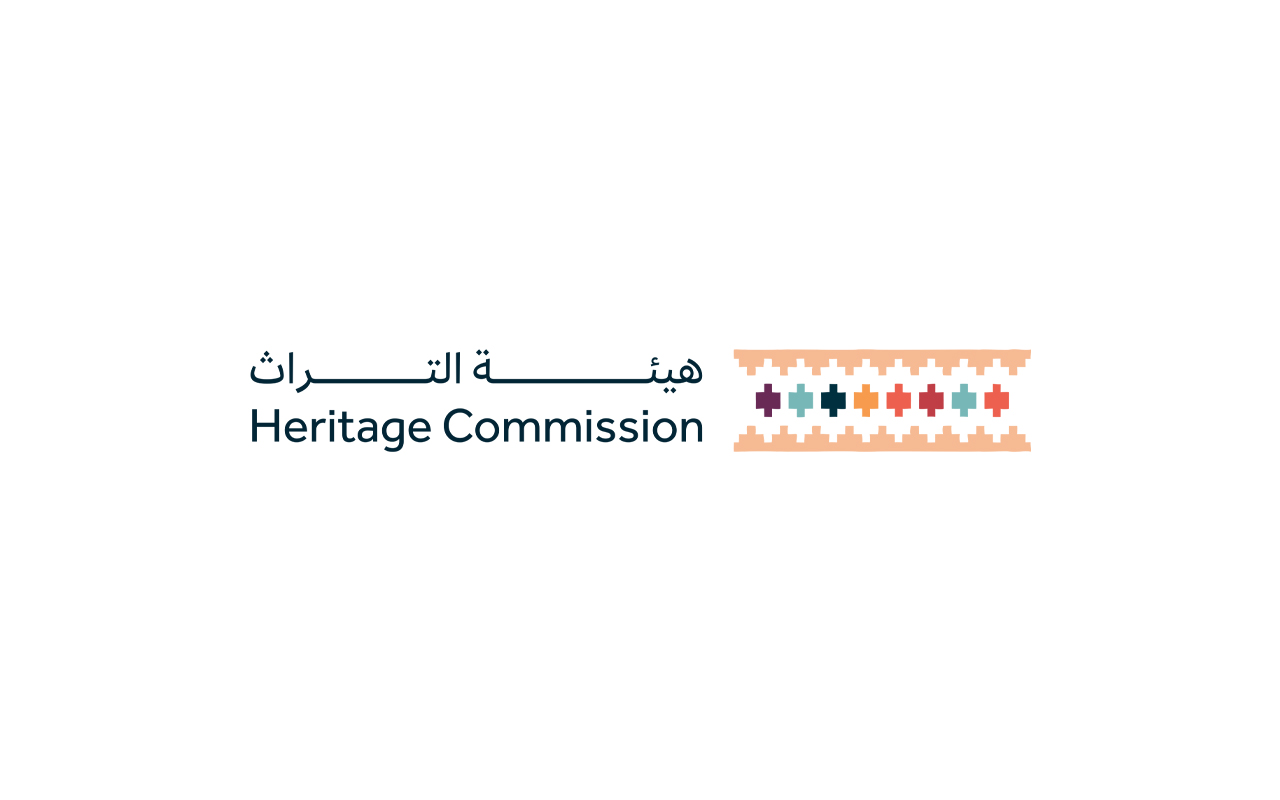Heritage Commission
The Heritage Commission is concerned with activities related to the heritage and antiquities sector in the Kingdom of Saudi Arabia. It is also responsible for protecting, exploring, preparing, maintaining, restoring, managing, and preserving this sector. Its mandate covers villages, cities, neighborhoods, crafts, traditional industries, heritage buildings, historical monuments, and intangible heritage. The commission was established in 2020 as one of eleven cultural commissions whose establishment was simultaneously approved by the Council of Ministers and affiliated with the Ministry of Culture.
Organization of the Heritage Commission
The Heritage Commission enjoys a general legal personality and financial and administrative autonomy. It has an annual operating budget within the budget of the Ministry of Culture. Organizationally, it is linked to the Minister of Culture, and its employees are subject to the Labor Law and the Social Insurance Law.
The Heritage Commission conducts its operations from its main headquarters in the capital, Riyadh. It has a board of directors chaired by the Minister of Culture, which oversees the commission's plans and the execution of its strategy, making all the necessary decisions to achieve its goals. The Heritage Commission has a CEO who is appointed and relieved of his position by a decision from the board of directors, and he is responsible for managing the affairs of the commission.
Heritage Commission logo
The Heritage Commission's logo features Arabic embellishment art inspired by al-Sadu motifs, reflecting the depth of Saudi heritage and history. Its colors reflect the dynamic realm of Saudi creators and take inspiration from the Ministry of Culture's logo.
Heritage Commission mandates
In accordance with its regulatory arrangements, the Heritage Commission has several mandates, among the most prominent are: supporting efforts to develop national heritage and raising awareness and interest in it, protecting it from extinction, organizing and hosting conferences, exhibitions, and events, representing the Kingdom in regional and international bodies, organizations, and forums, establishing a database for the heritage sector, licensing activities within the scope of the Commission's work, and encouraging individuals, institutions, and companies to produce and develop content in the heritage sector.
Heritage Commission achievements
Among the notable findings are the unearthing of the world's oldest stone traps and the discovery of human and predatory animal footprints in the north of the Kingdom. In 2020, the Heritage Commission unveiled the results of an archaeological survey conducted by a collaborative Saudi and international team. This team discovered human, elephant, and predatory animal footprints near an ancient arid lake on the outskirts of Tabuk Province, with a history dating back over 120,000 years. This archaeological find is considered preliminary scientific evidence of the earliest human presence on the Arabian Peninsula. It also provides a rare glimpse into the ecosystem during human migration to this part of the world. In 2020, a scientific team discovered stone structures in the Nafud desert in the Kingdom. These structures were traps for animals and are considered among the world's oldest stone traps, dating back to more than seven thousand years ago.
In 2020, the Heritage Commission, in collaboration with the Google Skillshop platform, launched a training program project named Digital Marketing Skills for Artisans. This program targeted two thousand male and female artisans. The Heritage Commission offers educational programs related to the heritage sector in addition to providing scholarships for talented individuals. The commission employs modern technologies to implement its initiatives and executive programs. Supporting this direction, in 2020, the Ministry of Culture launched a unified electronic platform for overseas cultural scholarships.
To uncover more archaeological discoveries that prove the historical depth of the Kingdom and the civilizations that have succeeded one another over many centuries, the Heritage Commission announced, in 2023, significant findings in various regions of the Kingdom. Among these discoveries was the identification and documentation of the first two inscriptions in al-Qassim Province in the center of the Kingdom. These inscriptions were written in the Dadanitic script during the archaeological survey conducted by the Heritage Commission in the area. These inscriptions are commemorative; one of them is written in early Dadanitic script, and the other in late Dadanitic. They are located on the facades of two rocks in an archaeological site in al-Qassim Province called al-Dulaymiyah. In the same year, the Heritage Commission completed an excavation project at the Halit Archaeological Site in al-Dawadimi Governorate in the Riyadh Province. This site is one of the mining sites that date back to the Umayyad era. It is mentioned in early historical sources under the name Maadin al-Najadi, named after its owners, the sons of Najad Bin Musa Bin Saad Bin Abi Waqqas, may Allah be pleased with him.
Heritage Commission strategy
The strategy of the Heritage Commission, launched in September 2021, is based on eight pillars. These include: effectively protecting, preserving, and managing cultural wealth and archaeological sites, bolstering research and nurturing specialized heritage talents, employing the latest digital technologies in the heritage value chain, formulating appropriate laws and regulations and issuing permits, extensively collaborating with the private sector, ensuring financing and supporting international agencies, fostering public awareness through disseminating cultural heritage information, and operating through broad partnerships at both local and global levels.
Heritage Commission initiatives
The Heritage Commission has launched a number of initiatives, including the Little Explorer initiative. This aims to engage children in archaeological excavations within the Kingdom, educate the young generation in all provinces of the Kingdom about the importance of archaeological excavations, and enhance community participation in protecting and preserving the national heritage. In addition to the Heritage Commission's Business Accelerator program, which aims to empower entrepreneurs and support the growth and expansion of start-ups in the sector, there's also the Saudi Noqoush initiative. This initiative seeks to activate the role of community members in reviving the national heritage represented in rock art and inscriptions.
